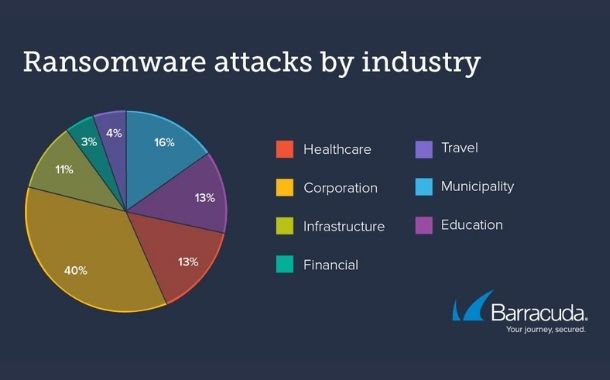Barracuda researchers identified and analysed 121 ransomware incidents that occurred between August 2020 and July 2021, and saw a 64% increase in attacks, year over year. Cybercriminals are still heavily targeting municipalities, health care, and education, but attacks on other businesses are surging:
- Attacks on corporations, such as infrastructure, travel, financial services, and other businesses, made up 57% of all ransomware attacks between August 2020 and July 2021, up from just 18% in our 2020 study.
- Infrastructure-related businesses account for 10% of all the attacks we studied. In fact, ransomware attacks are quickly evolving to target software supply chains, which reach more businesses in a single attempt.
- The ransom amount is increasing dramatically and now the average ransom ask per incident is over 10 million dollars. 8% of the incidents had a ransom ask less than $10 million, and 14% of the incidents had a ransom ask greater than $30 million.
- Ransomware attacks are becoming pervasive across the globe. Just under half (44%) of the attacks in the past 12 months hit U.S organizations.
“As cybercriminals are working towards bigger paydays in the future, the security industry needs to continue to create solutions that are easily consumable for companies of all sizes,” said Fleming Shi, CTO at Barracuda. “Attackers often start with small organizations that are connected to the larger targets and then work their way up. All of us in the security industry have an obligation to turn sophisticated technology into products and services that can be easily consumed by customers.”




















